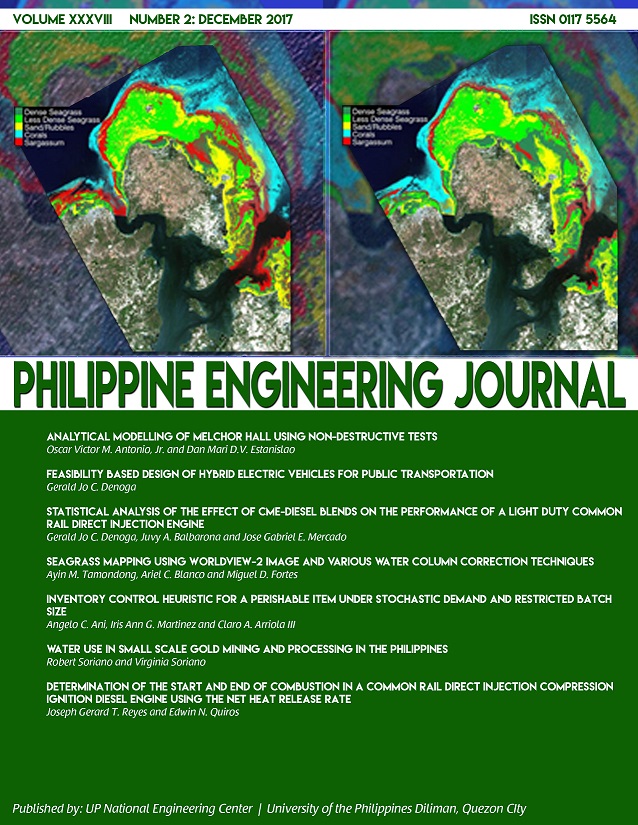Feasibility Based Design of Hybrid Electric Vehicles for Public Transportation in the Philippines
Abstract
The research is about the feasibility of adopting a novel parallel-series hybrid drive train for public transportation in the Philippines. The drive train will initially be designed to meet the performance requirements of existing public utility jeepneys. The design will then be evaluated against both a technical and an economic feasibility criterion. The technical criterion includes simulating the performance of the hybrid vehicle in the context of local PUV drive cycles, to arrive at estimates of fuel economy, battery requirements and refinements in gearing, motor and engine sizing. The economic feasibility will then be analyzed based on potential fuel savings checked against current fuel prices, prevailing interest rates, operating routes and schedules, maintenance costs and the market prices of the power train components. Discussion of the feasibility of the hybrid PUV will include possible changes in the design, acquisition, and operation of the drive train. Mentioned also are the implications on individual driver income, national economy, environment, and local industries.
Keywords—parallel series hybrid, public transportation, feasibility, total cost of ownership, life cycle analysis


